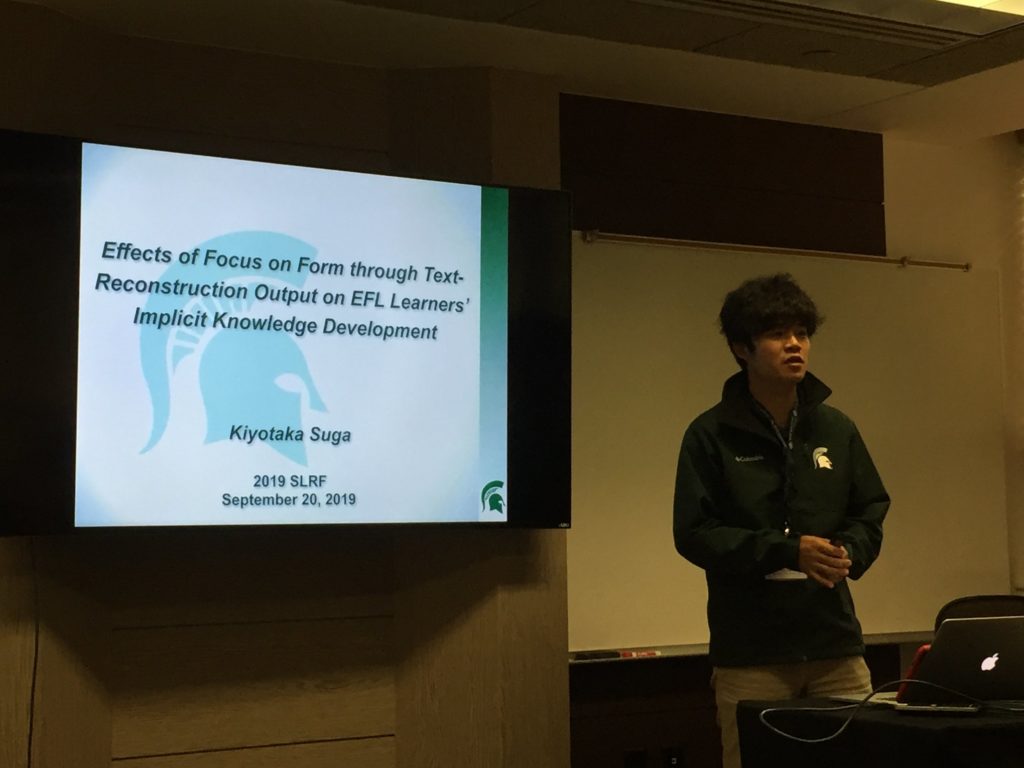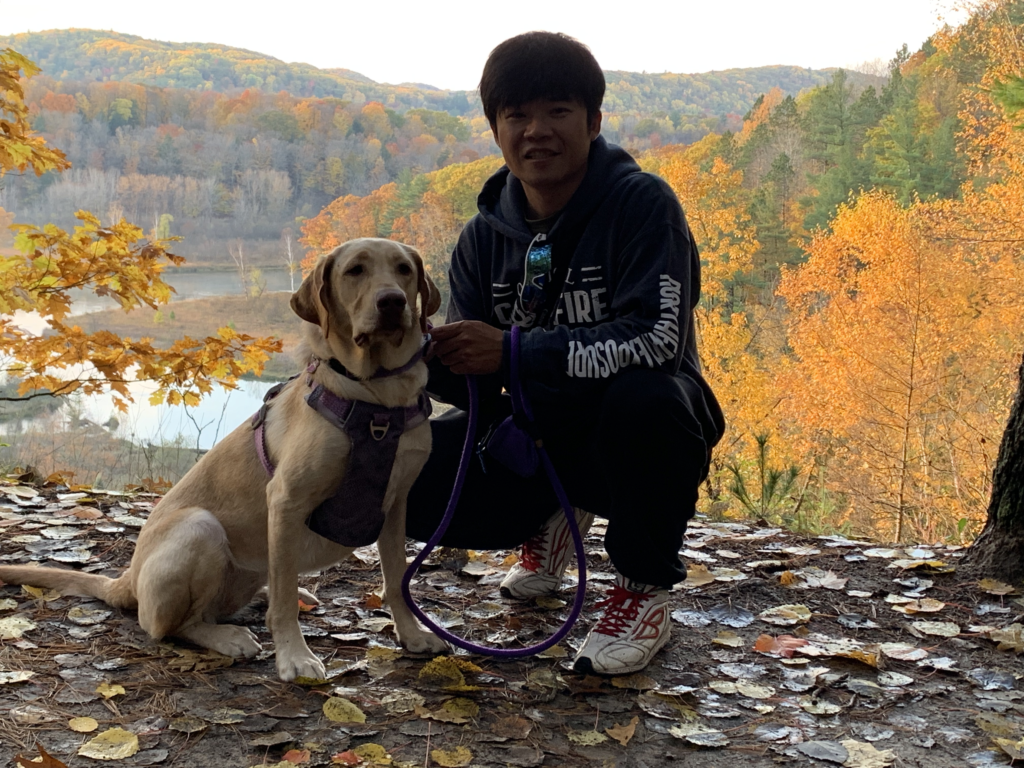Kiyotaka Suga is a fifth-year Ph.D. candidate in the Second Language Studies (SLS). He joined the SLS program in 2019 after completing his second master’s study in the MSU MATESOL program. He completed his BA and first master’s degrees at Sophia University in Tokyo.

Kiyo’s primary interests include various topics in Instructed Second Language Acquisition (ISLA), such as the roles of input and output, corrective feedback, implicit learning, focus on form, and methodological issues in the use of an oral elicited imitation test for quasi-experimental studies in ISLA, among others. He published my second qualifying paper at SLS from Research Methods Applied Linguistics with my advisor Dr. Shawn Loewen “Potential Test-Learning Effects of an Oral Elicited Imitation Test: Methodological Considerations for Form-Focused Instruction Studies.” Another project that he worked on with SLS graduates was also published by Language Learning, entitled “Revisiting Williams (2005) with Academic and Non-Academic Samples: An Individual Differences Study.” He is working on a quasi-experimental study that investigated the roles of meta-cognitive instruction on the effectiveness of recasts in Japanese EFL classrooms with Dr. Shawn Loewen, Dr. Masatoshi Sato, and Dr. Keiko Imura. The proposal of the study was accepted for a special issue of Studies in Second Language Acquisition and is currently under review.

His dissertation study is “The roles of output-induced noticing in adult L2 acquisition: A process- and product-oriented study through eye-tracking.” In this study, he uses eye-tracking and stimulated recalls to examine how engaging in L2 output practice can push adult L2 learners to pay more attention to grammar features that they are learning and then eventually facilitate their grammar learning. The findings of this study will test Swain’s Output Hypothesis and further clarify the roles of output practice in L2 classroom instruction with empirical evidence. Pedagogically, the findings will allow L2 teachers to incorporate empirically-based output practice into their daily teaching practices. This dissertation study is supported by the 2023 Language Learning Dissertation Grant. After the completion of his Ph.D. in Second Language Studies, he will return to Japan and work at a private university in Tokyo as an assistant professor.